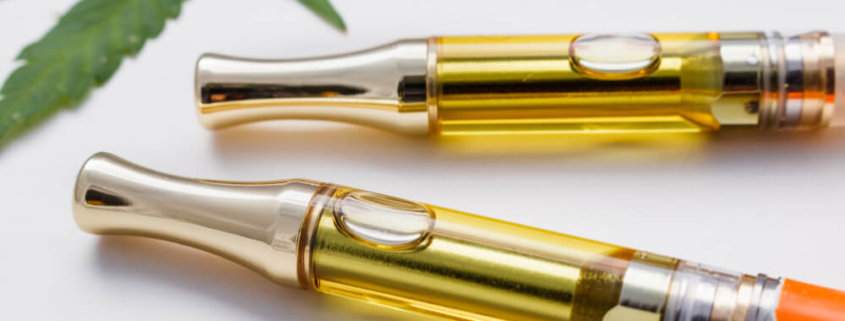THC Vapes Now Banned in Alabama: What HB445 Means for You
THC Vapes Now Banned in Alabama: What HB445 Means for You
As of July 1, 2025, it became illegal in Alabama to possess, sell, or distribute smokable hemp products — including hemp cigarettes, hemp joints, hemp flower, and hemp buds. There is also important clarification regarding THC-containing vapes and other non-combustion inhalation forms: the enrolled statute’s smokable prohibition targets combustible products and does not expressly include non-combustion “inhalable” products like vape cartridges, THC inhalers, and disposables. This change comes from House Bill 445 (HB445), which overhauled Alabama’s approach to consumable hemp products.
This is not just a regulatory tweak — it is a major shift in criminal and consumer law that will impact vape shops, gas stations, CBD retailers, and individuals alike. Most critically, possession or sale of prohibited smokable hemp products is now a Class C felony, carrying penalties of 1-10 years in prison and fines up to $15,000, making hemp products penalized more harshly than personal use marijuana possession, which remains a Class A misdemeanor.
Smokable Hemp Ban and Inhalable/Vape Distinction
Under HB445, all explicitly defined smokable hemp products are banned, including:
- Hemp cigarettes, hemp cigars, hemp joints
- Hemp buds, hemp flowers, hemp leaves, ground hemp flowers
According to the enrolled and signed version of HB445, “smokable hemp products” are limited to plant products or raw hemp material marketed as hemp cigarettes, cigars, joints, buds, flowers, leaves, or ground flowers. The statute’s smokable prohibition is focused on products intended for combustion.
Important: The enrolled statute does not use “inhalable” as a category and does not expressly reference non-combustion inhalation forms (for example, vape cartridges, disposables, aerosols, THC inhalers, nebulizers, or dabs/rosins intended for vaporization). Those products fall under the broader “consumable hemp product” definition (which includes concentrates, extracts, isolates, and resins) and are regulated beginning January 1, 2026, including the 10 mg THC-per-serving cap and other requirements.
What This Means in Practice
- Smokable/combustible hemp (flower, prerolls, hemp cigarettes) is prohibited and subject to Class C felony penalties.
- Non-combustion inhalation forms (vapes, disposables, THC inhalers, concentrates intended for vaporization) are not named in the smokable prohibition. They are treated as consumable hemp products and become subject to the 2026 licensing, testing, and potency framework.
- Despite this statutory distinction, some agencies have indicated they consider vapes banned. Businesses and consumers should be aware of potential enforcement risk where interpretations differ from the enrolled text, and seek legal counsel as needed.
Note on Clean Indoor Air Act: Alabama’s Clean Indoor Air Act defines and restricts smoking in certain public locations but does not itself prohibit vaping statewide. Local ordinances or private policies may restrict vaping. This further underscores the legal distinction between “smoking” (combustion) and non-combustion inhalation methods.
Two-Phase Implementation Timeline
- July 1, 2025: Smokable hemp products became illegal immediately (Class C felony)
- January 1, 2026: Full licensing, testing, THC-per-serving caps, packaging/labeling, and retail channel regulations begin for consumable hemp products (including non-combustion inhalation forms)
What Else Does HB445 Do?
In addition to the smokable hemp ban, HB445 imposes a wide range of regulations on consumable hemp products such as gummies, drinks, tinctures, and topicals beginning January 1, 2026. The law’s key provisions include:
Licensing Requirements
- Retailers, wholesalers, and manufacturers must be licensed by the Alabama ABC Board
- Licenses require background checks and local government approval
- $25,000 surety bond required
- Annual license fees:
- $5,000 for manufacturers and wholesalers
- $1,000 for retailers
- Selling without a license becomes a Class C felony on the third offense, with court-ordered business license revocation
- Non-combustion inhalation products (for example, vape cartridges and disposables) are regulated as consumable hemp products under this licensing/testing framework beginning January 1, 2026
THC Limits and Labeling
- 10 mg of THC per serving is now the legal maximum
- Products must include:
- Ingredient lists
- THC/CBD content
- Health and impairment warnings
- Child-resistant packaging
Sales Restrictions
- Products can only be sold to individuals 21 years or older
- Online, drive-through, and vending machine sales are prohibited
- Sales only allowed at:
- ABC-licensed liquor stores (off-premises only)
- Standalone hemp retailers (21+ only)
- Pharmacies (topical products only, with pharmacist supervision)
- Large grocery stores over 14,000 sq ft with restricted access zones (beverages only)
Tax and Enforcement
- 10% excise tax on retail sales
- Proceeds fund state compliance efforts
- Violations can lead to:
- Seizure of product
- Civil fines up to $20,000
- License suspension or revocation
- Class C felony charges
Hemp Now More Severely Penalized Than Marijuana
A significant consequence of HB445 is that possessing smokable hemp is now a Class C felony (1-10 years prison), while personal use marijuana possession remains a Class A misdemeanor (up to 1 year jail). This creates the paradoxical situation where non-intoxicating hemp products carry harsher penalties than actual marijuana.
Real-World Impact and Enforcement
The law has already forced small businesses to close entirely, with some owners facing severe financial hardship due to the rapid implementation timeline. Due to differing interpretations, some agencies have signaled they consider vapes banned, while the enrolled statute’s smokable prohibition addresses only combustible products. This divergence increases the need for careful compliance planning and legal guidance.
Pending Legal Challenges
Hemp companies have filed lawsuits challenging HB445 as unconstitutional, arguing it violates the Supremacy Clause and Commerce Clause by conflicting with federal hemp protections established in the 2018 Farm Bill.
Legal Implications for Consumers and Retailers
If you:
- Currently sell or distribute smokable hemp products (flower, prerolls, hemp cigarettes), you must cease operations related to those products immediately or face Class C felony charges.
- Operate a business that sells consumable hemp products (including non-combustion inhalation forms such as vape cartridges and disposables), you must obtain appropriate licensure by January 1, 2026, and comply with testing, labeling, and reporting rules (including the 10 mg THC cap).
- Are found in possession of prohibited smokable products, you may face seizure and Class C felony charges — even if the products were purchased legally under the previous law.
- Sell or possess vape or other non-combustion inhalation products, the enrolled statute treats these as consumable hemp products, subject to the 2026 regulatory framework; however, because some agencies have indicated they view vapes as banned, you should consult counsel and proceed cautiously to mitigate enforcement risk.
How Vaughn Defense Can Help
At Vaughn Defense, we represent individuals facing criminal charges or investigations related to smokable hemp products, THC vapes, and other non-combustion inhalation products, and other controlled substances under Alabama law. With HB445 now in effect, many people may find themselves unintentionally facing felony charges or compliance issues in a rapidly changing and sometimes ambiguous legal landscape.
If you are:
- Charged with Class C felony possession of smokable hemp or other products now deemed illegal,
- Under investigation for distribution or sale of hemp products,
- Facing criminal charges due to the legal ambiguity surrounding vape products,
- Or simply unsure about the legality of a product you purchased or used in good faith…
We’re here to defend your rights, clarify your options, and guide you through the legal process with experience and commitment.
Call today or visit www.vaughndefense.com to schedule a consultation. We proudly serve clients in Auburn, Opelika, Lee County, and throughout Alabama.





Leave a Reply
Want to join the discussion?Feel free to contribute!